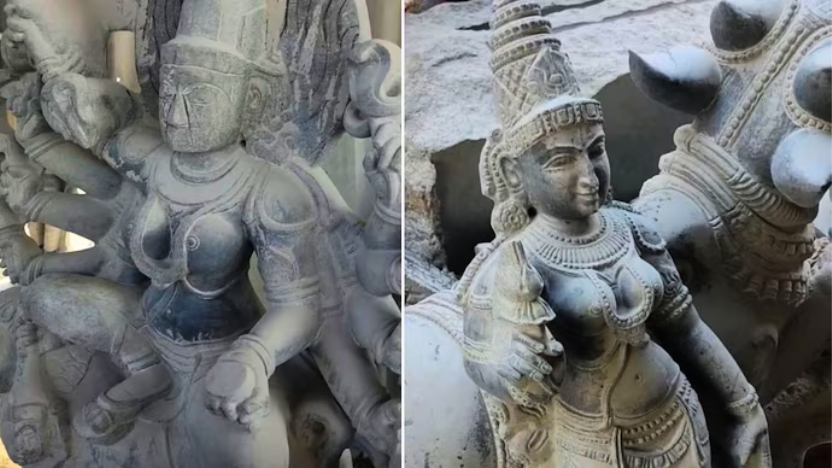Located on a serene 10-acre site near Lake Tawakoni in Quinlan, Texas, the temple is designed to be a spiritual sanctuary for the Tamil diaspora. Inspired by the renowned Samayapuram Mariyamman Temple in Tiruchirappalli, Tamil Nadu, the shrine will also feature the idols of Karuppannasamy, Muneeswaran, Ayyanar, Vaazhmuni, Sorimuthu Ayyanar, and Padhinettam Padi Karuppu, honoring centuries-old village traditions deeply rooted in Tamil culture.
The idols are being carefully sculpted by artisans in Mamallapuram, near Chennai, led by master craftsman Selvanatha Sthapathi. This marks a historic milestone, it is the first time idols for an Amman temple are being specially commissioned in India for installation outside the country. Alongside Goddess Mariyamman, the temple will also house Lord Ganapathy, Lord Murugan, and other deities, making it a spiritual home for devotees seeking blessings close to where they live.

True to Tamil customs, the temple will preserve traditional practices such as Aadi month ragi porridge offerings, neem leaf ceremonies, and naattar deivam worship, keeping alive rituals that connect generations to their roots. For many families, it will also become a place where kuladeivam and kaavaldeivam worship can be performed locally, reducing the need to travel to India every year while still honoring ancestral traditions.
The vision behind this temple was brought to life by Saraswati Ganeshan and her husband Tharagaram Baashyam, originally from Chennai, who now call Texas their home. Together with the temple committee and the support of the Tamil diaspora, they have overcome numerous challenges from transporting idols to obtaining necessary approvals to turn this dream into reality. A proposed 3D design of the shrine reflects their dedication to creating a sacred space that blends tradition with modernity.
Beyond being a place of worship, the Arulmigu Mariamman Temple is envisioned as a cultural hub, a place where Tamil heritage, rituals, and values are preserved for future generations. The temple committee has also committed to operating on a non-profit, volunteer-led model, following a strict “no plastic” policy and promoting inclusivity, women’s empowerment, and youth participation in every aspect of its activities.
For the Tamil community in the U.S., this temple is more than stone and sculpture it is a home for faith, a space to celebrate traditions, and a way to pass down centuries of culture and devotion to the next generation.
Source / Image Credit : Organiser.org, India Today
